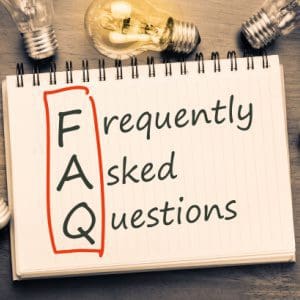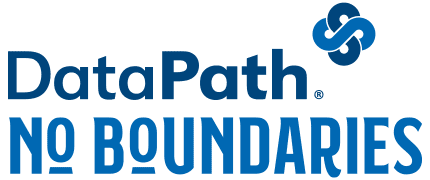The 2022 Kaiser Family Foundation Employer Health Benefits Survey reported that PPOs (Preferred Provider Organization) remain the most common health plan type, with 49% of covered workers enrolled in them in 2022, as opposed to 29% in a high-deductible plan (HDHP). Employees in the PPO pool may reduce their healthcare expenses with the tax-advantaged option of Flexible Spending Accounts (FSAs). But this option remains largely misunderstood so here are some Frequently Asked Questions (FAQs) about FSAs.
FSA FAQs
What is a Flexible Spending Account or FSA?
A Flexible Spending Account (FSA) is an employer-sponsored, tax-advantaged benefit account for employees. Through an FSA, you can withhold pre-tax dollars from employees' paychecks to cover out-of-pocket healthcare expenses. These funds may be used to pay expenses for both the account holder and qualified dependents.

What benefits do FSAs offer?
The primary benefit of FSAs is the tax saving they offer. Account owners contribute to the account with funds withdrawn from before tax calculations. In other words, those funds are not subject to Federal, FICA, or State taxes. Then that money goes into an account used to pay for qualified medical expenses for the account owner and their dependents.
What is a "qualified" expense?
FSA funds may pay for medical, dental, or vision expenses not covered by insurance. These may include things like deductibles, copays, co-insurance. However, it may also cover a long list of products and services, including products that are medically necessary, require a prescription, or are available over-the counter (OTC) as follows.
Letter of Medical Necessity - From massage therapy to weight loss supplements and services to support hose, there are a number of products and services deemed medically necessary that may not be covered by traditional health insurance, but they may be FSA-eligible.
Prescribed drugs and medications - Drugs and medications that require a doctor's prescription may be covered as well whether it be something not available over-the-counter like an asthma-treating inhaler, to prescription strength OTC products like pain relievers or sleep aids.
General OTC products - Even various products that do not contain drugs or medications are eligible, and these still surprise many account holders. From bandages, to acne-treating facial products to sunscreens, various daily use products are eligible.
For the complete list of eligible expenses, please refer to IRS Publication 502.
Which dependents are qualified to use FSA funds?
Spouses and children are always considered to be dependents so they are able to use FSA funds. But also included are those the account owner claims as an exemption for federal income tax purposes.
How does enrollment work?
Existing employees may enroll in an FSA during an employer's open enrollment period. New hires are generally provided a 60-day window during which they can enroll in an FSA. Further, if your family status changes, you may have the option to enroll or change your enrollment depending on the plan setup. Please consult your HR department for plan details and available options.
How much may I contribute?
For 2026, the maximum annual FSA contribution limit is $3,400.
How does FSA funding work?
First, account holders will decide how much they want to contribute, up to the annual maximum. That amount will be divided by the number of pay periods and is deducted from each pay period in equal amounts.
When can the FSA contribution amount change?
Contributions may not be changed after open enrollment unless you experience a qualifying event. Examples of qualifying events include employment status changes, marriage/divorce, or a new family member who joined through birth or adoption. Again, please consult your HR department for more information.
How are funds accessed?
Some FSA account holders receive a debit card they can use to purchase eligible products and services. If not, the account holder will pay out-of-pocket and submit the expense for reimbursement. That may happen in a smartphone app, a participant portal, or through forms submitted via email, fax, or mail. Regardless of the method of payment or reimbursement, always keep receipts and other purchase documentation should you be called upon for more information. Note that non-itemized cash register/credit card receipts and cancelled checks may not be used to document a claim.
What if funds pay for a non-eligible item?
Claims made for non-eligible items will likely be denied by the plan administrator, so nothing further needs to be done. However, should an FSA debit card purchase prove ineligible after the transaction is complete, the funds must be returned to the account. That may be a future payroll deduction, check or EFT payment, etc. If the account holder fails to do so, the expense may trigger an income tax liability.
What happens to unspent funds?
Employers may offer participants one of three options as follows.
- Use it or lose it - In some plan setups, any funds unspent at the end of the year forfeit to the employer, even if the participant was the only contributor.
- Carryover - Some participants may be able to carryover a specified dollar amount to use during the next plan year. Although there is a maximum allowable carryover, the amount is at the employer's discretion.
- Grace period - Some plans include a 2.5-month grace period in which participants can spend remaining funds.
Does Carryover apply to the next year's election?
No. Carryover amounts are available in addition to the amount elected for the next plan year.
Are there single/family options or can anyone have an FSA?
Unlike other benefits that address single/family coverage needs, in a two-employee household, both may enroll in separate FSAs and contribute the maximum amount through their respective employers.
Are there FSA plans for other expenses?
Dependent Care FSAs
Whereas a standard FSA pays for qualified medical and healthcare expenses, Dependent Care FSAs pay for out-of-pocket expenses related to the care of the participants dependents during the day while they are otherwise occupied with work or school.
Eligible expenses for DCFSA funds include daycare centers, aftercare centers, summer camps, and daycare centers for seniors. However, the expenses may only pay expenses for dependents who meet the following criteria:
- Under 13 years of age and for whom you are entitled to and IRS Code 151(c) deduction; OR
- Unable to be left alone physically, mentally, or both
Limited Purpose FSAs
Limited Purpose FSAs are an FSA option for participants in a high-deductible health plan with a Health Savings Account (HSA). These funds may only pay for qualified vision and dental expenses, that have not already been paid with HSA funds.
Can funds transfer between FSA accounts?
No. Money cannot move between any FSA accounts.
FSAs: Effective and Beneficial
While they may seem complicated, FSAs offer employees significant tax savings as they pay for eligible expenses. These accounts offer various ways to access funds and a long list of eligible expenses. And as employees across the country work to reduce expenses and save money, FSAs are another effective way for them to do so. And as employers look to reduce expenses and save money, FSAs offer an attractive benefit that may work to retain valuable talent, without a significant cost responsibility. It's a win-win for both parties, so share these FSA FAQs with your employer groups.
For 40 years, DataPath has been a pivotal force in the employee benefits, financial services, and insurance industries. The company’s flagship DataPath Summit platform offers an integrated solution for managing CDH, HSA, Well-Being, COBRA, and Billing. Through its partnership with Accelergent Growth Solutions, DataPath also offers expert BPO services, automation, outsourced customer service, and award-winning marketing services.

